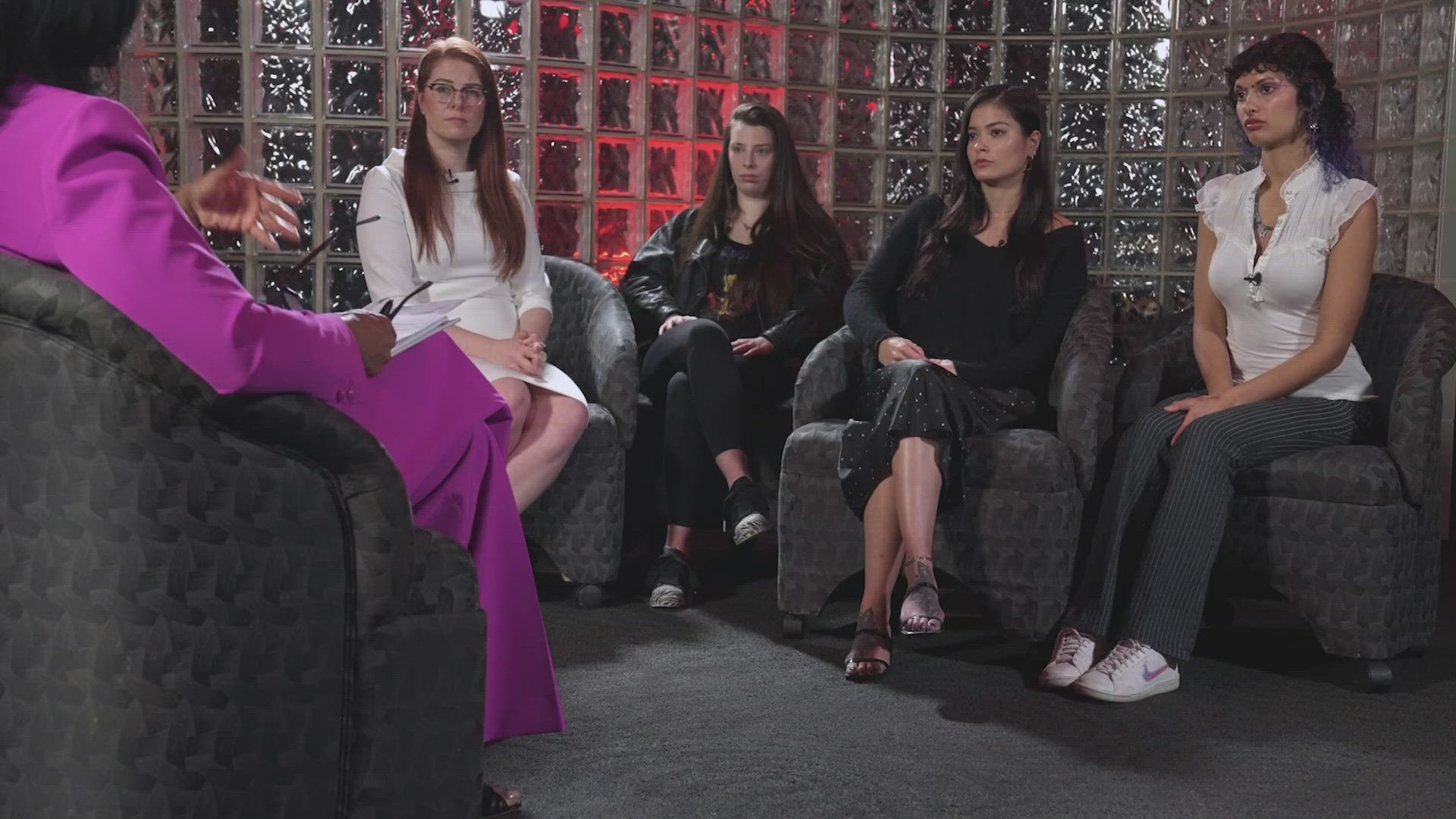SEATTLE — Strippers are Workers (SAW) is an organization of more than 300 women fighting to pass a “strippers bill of rights."
Washington is the only state in the country that does not allow alcohol to be sold in strip clubs, which means all 11 clubs in the state depend solely on dancers for their income.
A professor, an activist, a single mom and a campaign manager go on the record to strip back the stigma of a profession they love and feel few people understand.
Kasey, engineer and University of Washington professor: The role the strip club plays in the community is vital. Sex work has always played that role in the community. It taught me so much about myself and how to move through the world and who I wanted to be and what type of boundaries I wanted to store. It made me who I am, and I'm so proud of it.
Joyce Taylor: When it comes to public perception, (put up) a show of hands if you think people have a lack of understanding about what you do.
All: Yeah, yeah. Yeah.
Peach, criminologist and activist: I moved to Seattle with the intention of going to law school after I had finished my bachelor's degree. And that's when COVID hit.
Recluse, a single mom: I come from a background where it's very difficult to get traditional employment. I'm autistic. So I wasn't fitting into traditional workplaces.
Madison, campaign manager for SAW: As a teenager, I came from a pretty like, complicated living and home situation in life. And I struggled with mental illness. I was in and out of the system.
Kasey: I started dancing at 18. I was a full-time student at the University of Washington at the time, it was in 2007. Everyone in my family was unable to earn an income. And so my choices were drop out of school, or find a job that would allow me to stay in school and support at that time, three adults and my younger sister. I now am a professor at the University of Washington. I worked in tech for about 10 years at Google and Microsoft and things like that. And honestly, dancing still my favorite job.
Recluse: I had a kid, a very difficult pregnancy. And after that, I knew that I couldn't go back to the low of the low-wage jobs and support the two of us. So I got on a Greyhound bus - asked a friend in Oregon, if I could stay with them for a weekend and just walked into a club and got hired right off the bat. And it was that first night was some of the most fun I've ever had. I came away at the end of the night, looked at the money in my hands. I was like I should have done this a long time ago.
Taylor: What is your story? How did you get involved in dancing?
Madison: I was really scared that I wouldn't be able to like hold on to a consistent, like, normal job and schedule. And so stripping just seemed like the right way for me to make enough money to pay rent, to go back to school to get my diploma and college degree and to like, manage the ups and downs of needing to take time off for myself.
Peach: Some of the things that I was specifically looking for in this industry was a job where I can be physically active and focus on my health. I also wanted a job where it can be really flexible about when I work. I have multiple different, like chronic illness, and just things like chronic migraines,
Taylor: Do you think that the public's perception of what you do? Is an obstacle to you being safe in the workplace?
Madison: Oh, yeah, I think that that is the core of what we are facing is we are dealing with regulations that are based on stigma, that are now further harming us in our workplaces.
Kasey: People feel we deserve what happens to us that we are putting ourselves inherently at risk, when really, it's just the policies that are putting us at risk.
Peach: Dancing is not inherently dangerous. And I also a reject the idea that our customer base is just more violent or dangerous than anyone else.
Taylor: Let me ask you this question. What do you say to some of our viewers who don't think dancing should even be legal?
Recluse: No matter what any of the viewers think no matter what people think there is a fact that certain women just can't get other jobs, that this is a last resort. And then the resort after that is working on the street.
Taylor: Are you one of those women?
Recluse: Definitely. And it works. And it's fun, and I don't have to stand out on Aurora in the freezing cold weather.
Kasey: This is the safe place, we are professionals. We, as humans, we need connection, we need intimacy, and the world that we play a lot of times is really lovely, I have such deep, lovely relationships with some of my customers, who, frankly, could only have that interaction because of the dynamic of the strip club.
Madison: Dancers are genuinely some of the most skilled, intelligent and like beautifully empathetic and caring people I've ever met in my whole life. We all deserve to be safe and to be supported doing something that we're consenting to.
So, what would it take for these dancers to feel safe? Changing the policies they say puts them at risk.
Next week, our conversation focuses on the bill of rights these women are fighting for - an equitable pay structure, security measures and oversight.
It's a bill they hope creates a pathway for alcohol sales in Washington’s strip clubs – which they say would be a game changer.

